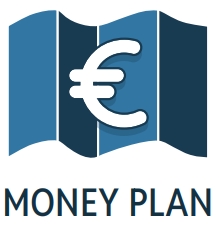Why Beating the Market is Difficult and Why a DAX ETF May Not Be the Optimal Choice
Many investors dream of beating the market—whether by buying individual stocks or investing in actively managed funds. However, reality paints a different picture: only a few manage to achieve better long-term returns than the broad market. Let’s explore the challenges of active investing, why a DAX ETF may not always be the best solution, and why, in my opinion, a scientifically-backed, globally diversified approach offers the highest chances of success.
Why Beating the Market is So Difficult
The primary reason why it’s so hard to beat the market is that markets are generally efficient. This means that the prices of stocks and other securities already reflect all available information. Even professional fund managers, who have access to extensive data and analysis tools, often find it difficult to consistently make better decisions than the broad market.
Statistics show that most actively managed funds underperform their benchmarks in the long run, mainly due to high costs. These costs include management fees and transaction costs that arise from frequent trading. The attempt to predict short-term market movements often leads to poor decisions, making it unlikely that even experienced investors can consistently outperform the market over extended periods.
The Limits of a DAX ETF
An ETF (Exchange Traded Fund) tracking the DAX offers a cost-effective way to invest in the German market. While ETFs are an attractive option due to their low fees and transparency compared to active funds, a DAX ETF comes with specific risks. The DAX consists of the 40 largest publicly listed companies in Germany, which means that such an ETF carries a high geographical concentration risk. This makes the portfolio more vulnerable to economic and political developments in Germany and Europe.
Although the German stock market includes some globally leading companies, it lacks the global diversification essential for a balanced portfolio. Different countries and markets go through varying economic cycles. Investing solely in Germany means that an investor’s fortunes are tied to a single economy, instead of benefiting from opportunities in global markets.
A Scientifically-Backed, Global Approach
Many studies demonstrate that a globally diversified portfolio based on scientific principles offers the best chances for long-term success. This approach not only reduces risk through geographical diversification but also allows investors to participate in the performance of the world’s strongest companies.
ETFs that track a broad global equity index, such as the MSCI World or FTSE All-World, give investors access to thousands of companies worldwide. These global indices not only cover major industrialized nations but also emerging markets. This leads to better risk distribution and greater portfolio stability, as it is less dependent on the economic conditions of a single country or region.
A scientific investment approach relies on long-term trends and avoids short-term market speculation. Key principles include diversification, cost efficiency, and the use of ETFs to track broad markets. Numerous academic studies, such as those by Eugene Fama and Kenneth French, have shown that markets tend to achieve efficient outcomes over the long term. It’s therefore more prudent to invest broadly rather than betting on individual stocks or sectors.
Conclusion
It is extremely challenging to beat the market, especially over the long term. While a DAX ETF provides a low-cost way to invest in the German market, it also poses significant risks due to its concentration in a single region. A scientifically-backed approach, with global diversification, offers the best chances of success by spreading risk and allowing investors to participate in the value growth of the strongest companies worldwide. Those aiming for long-term success should opt for broad global diversification rather than relying solely on a national market like the DAX.
If you want to learn more about creating a well-diversified, cost-efficient, and crisis-tested portfolio, feel free to reach out to me at www.udokerzinger.de.


 Deutsch
Deutsch